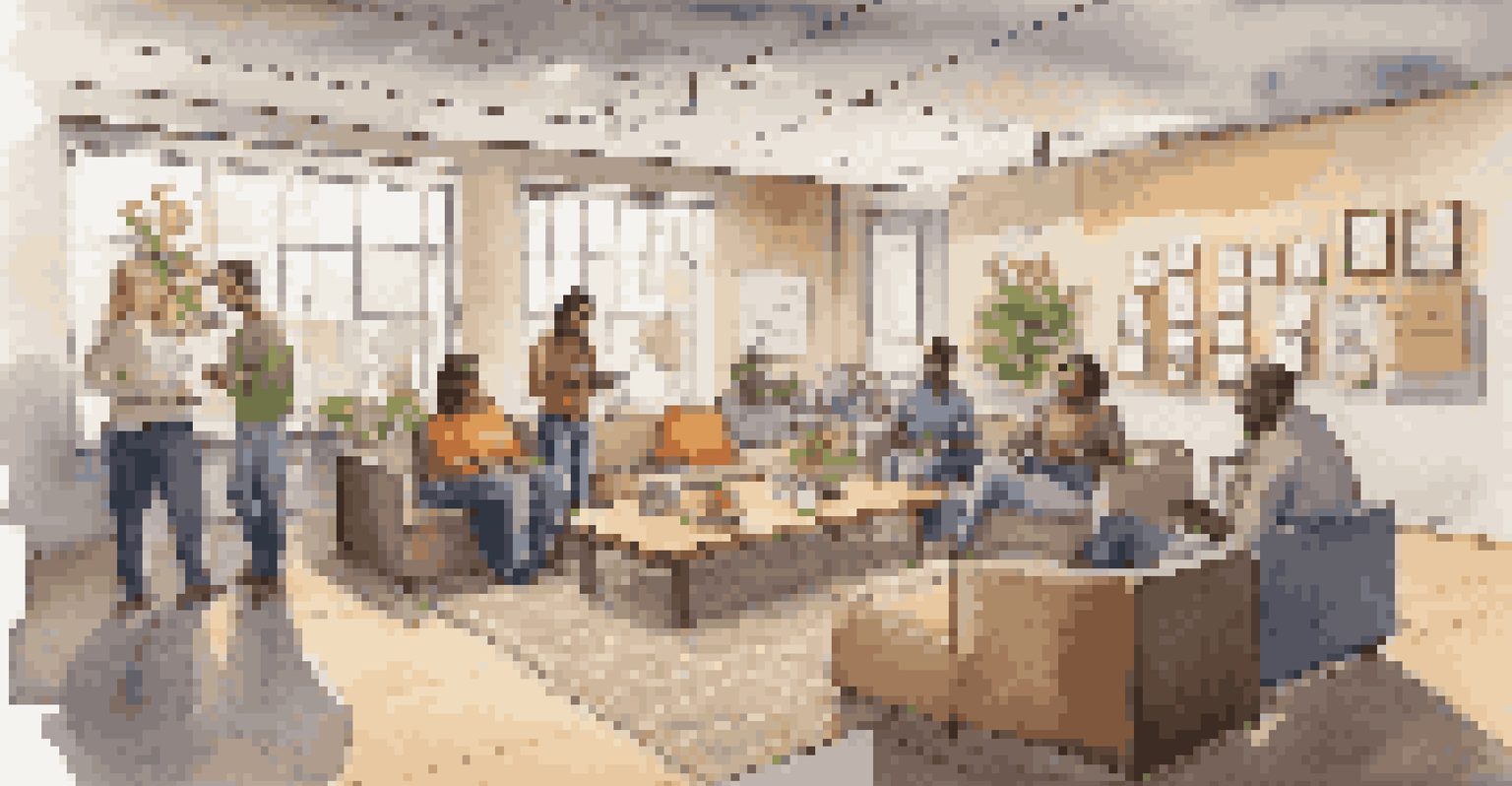The Importance of Breaks: Time Management for Maximum Output

Understanding the Science Behind Breaks and Productivity
Breaks are not just a pause in work; they are essential for maintaining productivity. Studies have shown that our brains can only focus intensely for about 25 to 50 minutes before fatigue sets in. This means that taking short breaks can help recharge your mental batteries.
Almost everything will work again if you unplug it for a few minutes, including you.
Imagine trying to run a marathon without any water stops. You'd quickly run out of steam! Similarly, our minds need downtime to refresh and reset, which ultimately leads to better focus and creativity when we return to our tasks.
Incorporating regular breaks into your work routine can significantly enhance your overall output. It's a simple yet effective strategy to prevent burnout and keep your mind sharp throughout the day.
The Connection Between Breaks and Mental Well-being
Taking breaks not only boosts productivity but also promotes mental health. Continuous work without breaks can lead to feelings of stress and overwhelm, which can negatively impact your mood and well-being. By stepping away from your desk, you give your mind a chance to relax.

For instance, going for a short walk or practicing deep breathing for a few minutes can help clear your head and improve your outlook. This simple shift can make a world of difference when you return to your tasks, allowing you to approach them with a fresh perspective.
Breaks Boost Productivity
Taking regular breaks helps recharge your mental energy, enhancing focus and overall output.
Prioritizing mental well-being through breaks is crucial in today’s fast-paced work environment. A healthy mind translates to improved focus and creativity, ultimately enhancing your overall performance.
Different Types of Breaks and Their Benefits
Breaks come in various forms, each offering unique benefits. Short breaks, often referred to as 'microbreaks,' can be as brief as a couple of minutes to stretch or grab a drink. These help to reduce physical strain and mental fatigue.
The time to relax is when you don't have time for it.
On the other hand, longer breaks, such as lunch breaks, allow you to disconnect from work entirely. This separation from your tasks can help you recharge both mentally and physically, making you more productive when you return.
Additionally, taking a break can spark creativity. Engaging in a completely different activity during your downtime can lead to fresh ideas and solutions to problems you might have been struggling with.
How to Effectively Schedule Breaks in Your Day
To maximize the benefits of breaks, it's essential to schedule them intentionally. Consider using techniques like the Pomodoro Technique, where you work for 25 minutes and then take a 5-minute break. This structured approach keeps your focus sharp and ensures you don't skip breaks.
Another effective method is to block out specific times in your calendar for breaks. Treat these times just like you would a meeting; this helps reinforce the importance of stepping away from work.
Mental Well-being Matters
Stepping away from work can alleviate stress and promote a healthier mindset, leading to better performance.
Lastly, be mindful of how you spend your breaks. Engaging in activities that truly relax you, like reading or meditating, can enhance the rejuvenating effects of your downtime.
The Role of Breaks in Creative Thinking
Breaks play a significant role in fostering creativity. When you allow your mind to wander during downtime, you're giving it the space to make new connections. This is often when the best ideas surface.
Think of it like letting a pot of water simmer; if you keep it on high heat, it might boil over, but if you let it simmer, it develops rich flavors. Similarly, taking breaks allows your brain to process information at a comfortable pace.
Incorporating activities that inspire you during breaks—like listening to music or going for a walk in nature—can further fuel creativity. These moments of inspiration can lead to breakthroughs in your projects.
Common Misconceptions About Taking Breaks
One common misconception is that taking breaks wastes time. In reality, breaks are an investment in your productivity. When you return to work refreshed, you're more efficient and effective, ultimately saving time in the long run.
Another myth is that breaks should only be taken when you're feeling tired. In truth, incorporating regular breaks throughout your day can prevent fatigue from setting in the first place. This proactive approach keeps you energized and focused.
Creativity Thrives on Downtime
Allowing your mind to wander during breaks can spark creativity and lead to innovative ideas.
Lastly, some people believe that breaks should always be long to be effective. Even a few minutes of stepping away from your desk can make a significant difference. The key is to find what works best for you and stick to it.
Creating a Break-Friendly Work Environment
To fully embrace the power of breaks, it's essential to cultivate a break-friendly work environment. This can start with encouraging a culture where taking breaks is normalized and valued. When everyone around you prioritizes breaks, it becomes easier to do the same.
Consider creating designated break areas in your workplace, such as a cozy lounge or outdoor space. These areas can provide a refreshing change of scenery and encourage employees to step away from their desks.

Additionally, leading by example as a manager or team leader can inspire others to take breaks. When you demonstrate that you value breaks, it sends a message that it's okay for everyone to prioritize their well-being.